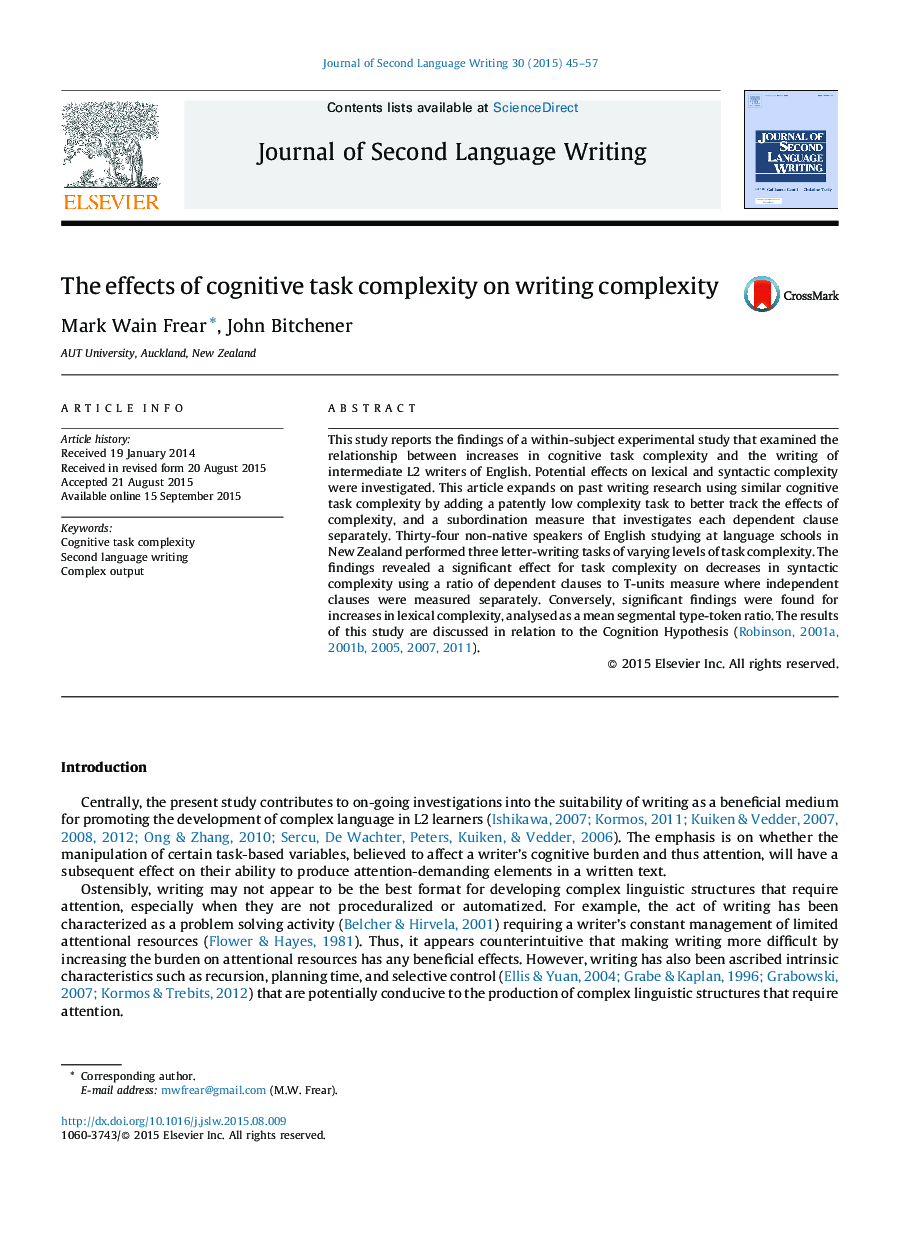| کد مقاله | کد نشریه | سال انتشار | مقاله انگلیسی | نسخه تمام متن |
|---|---|---|---|---|
| 363949 | 620940 | 2015 | 13 صفحه PDF | دانلود رایگان |
• Task complexity potentially triggered contrary effects on lexical and structural written complexity.
• A non-complex task potentially improved tracking of variations in task complexity.
• Analysing dependent clauses separately revealed a significant result.
• No clear support for the Cognition Hypothesis.
This study reports the findings of a within-subject experimental study that examined the relationship between increases in cognitive task complexity and the writing of intermediate L2 writers of English. Potential effects on lexical and syntactic complexity were investigated. This article expands on past writing research using similar cognitive task complexity by adding a patently low complexity task to better track the effects of complexity, and a subordination measure that investigates each dependent clause separately. Thirty-four non-native speakers of English studying at language schools in New Zealand performed three letter-writing tasks of varying levels of task complexity. The findings revealed a significant effect for task complexity on decreases in syntactic complexity using a ratio of dependent clauses to T-units measure where independent clauses were measured separately. Conversely, significant findings were found for increases in lexical complexity, analysed as a mean segmental type-token ratio. The results of this study are discussed in relation to the Cognition Hypothesis (Robinson, 2001a, Robinson, 2001b, Robinson, 2005, Robinson, 2007 and Robinson, 2011).
Journal: Journal of Second Language Writing - Volume 30, December 2015, Pages 45–57
